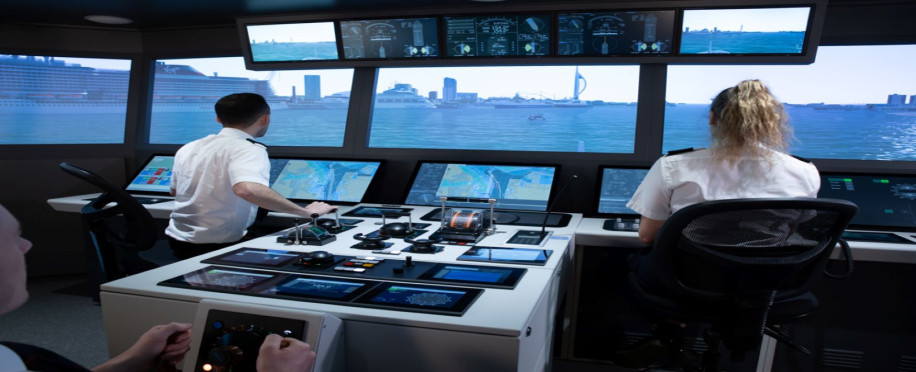Copyright © 2026 lmitac.com All Rights Reserved. Contact - Terms and Conditions - Privacy Policy - Quality Policy - Become an instructor - Vacancies - Sitemap
London Maritime Academy is a trade name for London Premier Groupversion: 2.9.0
London Maritime Academy is a trade name for London Premier Group

Posted on : 10/9/2023, 8:16:57 AM
Last Update : 10/14/2025, 5:09:32 PM
Bridge Resource management is the maritime equivalent of headquarters management in the corporate world, where all operational master plans are designed and implemented.
Bridge Team Management (BRM) refers to how a crew on a vessel manages its resources to carry out its passage safely. That implies that there ought to be accurate manpower, hardware and material distribution where everybody knows their part and when to do it.
This article examines the factors that play a part in effective bridge resource management and how good leadership can keep vessels safe.
As we've previously mentioned, bridge resource management includes the management of all procedures on a ship, not only limited to ship navigation or route planning; it also extends to training the crew on teamwork, communication skills, security technologies and risk management.
But why does this happen? What is the actual purpose of bridge resource management? What makes it an essential skill that every mariner seeks?
One of the significant aims of marine bridge resource management is to ensure vessel safety and prevent accidents at sea. It's essential because human error is one of the leading causes of maritime accidents. Bridge resource management helps to reduce the likelihood of these mistakes by seeking and developing a systematic, technical, proactive approach to managing all aspects of ship operations.
One of the critical skills in effective bridge resource management is risk assessment. Mariners must be able to assess all risks at sea, whether they are related to the weather conditions, navigation or human error, so situational awareness, a good understanding of coastal navigation and pilotage, being able to make quick decisions when you're in deep waters are some of the skills required to be an excellent marine pilot and prevent any incidents of danger.
Although a detailed, comprehensive guide to bridge resource management can be found in Marine Human Element training courses, where you can learn an extensive guide and watch officers in action on their ships, here is an introduction to the key components of effective management:
It is one of the most essential requirements for bridge resource management. Communication is the backbone of any effective team, and it’s no exception on a shipboard. Mariners must be able to communicate effectively, whether by offering guidance through radio or simply talking face-to-face.
Communication is essential during emergencies, in case of any collision or an engine break or leak, and officers must be able to clearly explain the details of any situation and give orders on how to assist with the problem.
While communication offers a great way to manage teams and focus their efforts on the plan at hand, situational awareness does the same for the world without; an excellent marine pilot explores their surroundings, has a good set of navigational skills and immediately identifies and sign of danger and is willing to meet it with guard and sharp decision-making skills.
Here, it only seems fit to point out that the core of bridge resource management is the endorsement of all safety procedures possible; this core concept is due to show in all of its components.
The final component of bridge resource management is leadership and decision making; this can help you keep your ship on course when all other members fail. An excellent marine pilot needs to lead by example and be able to make intelligent and proper decisions in times of crisis based on their professional knowledge and wisdom.
What creates good masters of ships is their ability to keep their will in a time of crisis when they're far away from the coast; this means that if you want to be a ship master, you have to be able to keep your mind calm and clear in a time of distress.
Ridge resource management requirements are essential for marine pilots to ensure the safety of their ship, crew and cargo; they can include:
Bridge resource management is essential in the marine pilot profession because it ensures their vessels’ safety and the safety of other ships nearby. That's why pilots need to have a good grasp of how to manage a bridge effectively.
